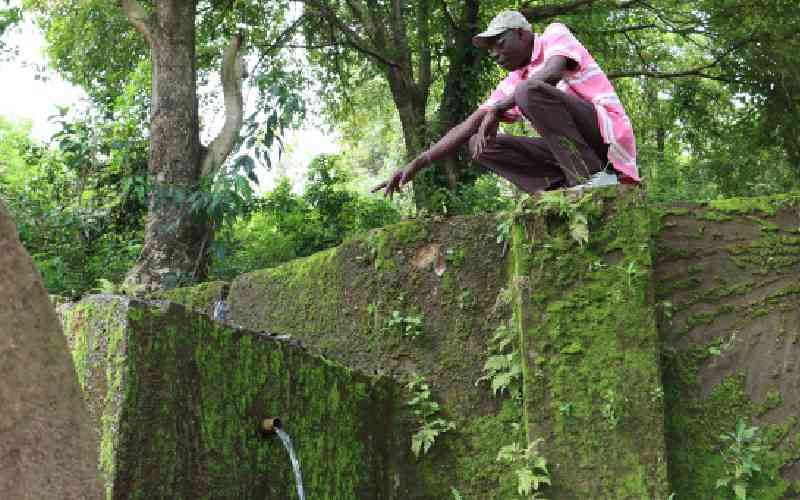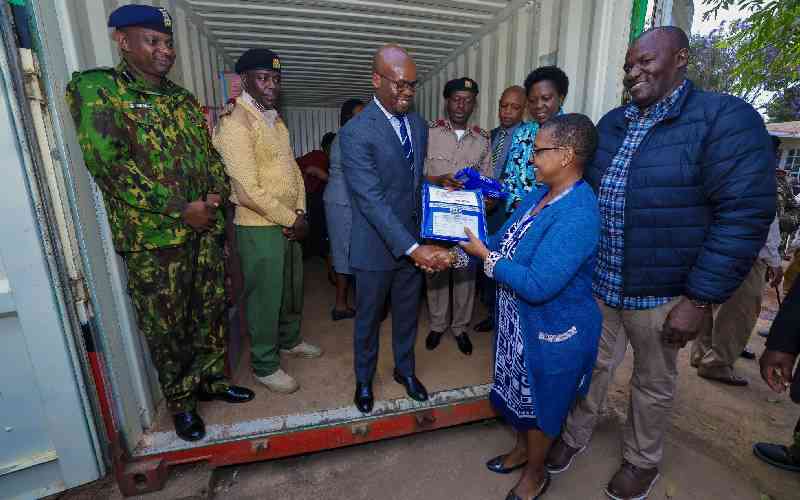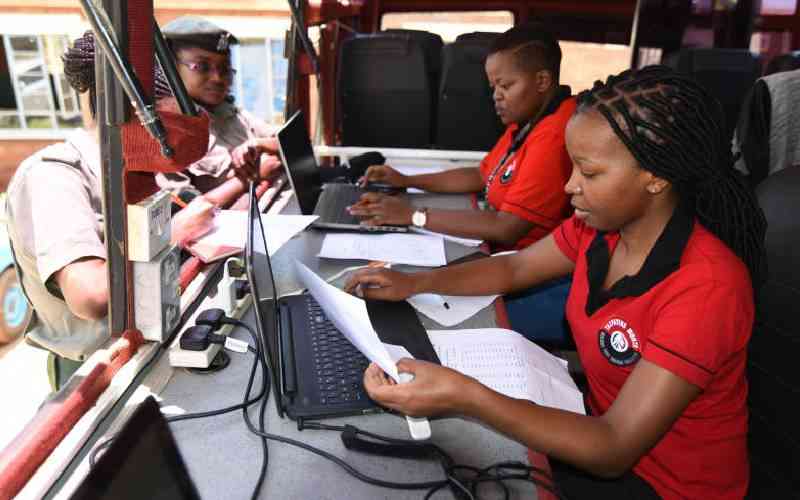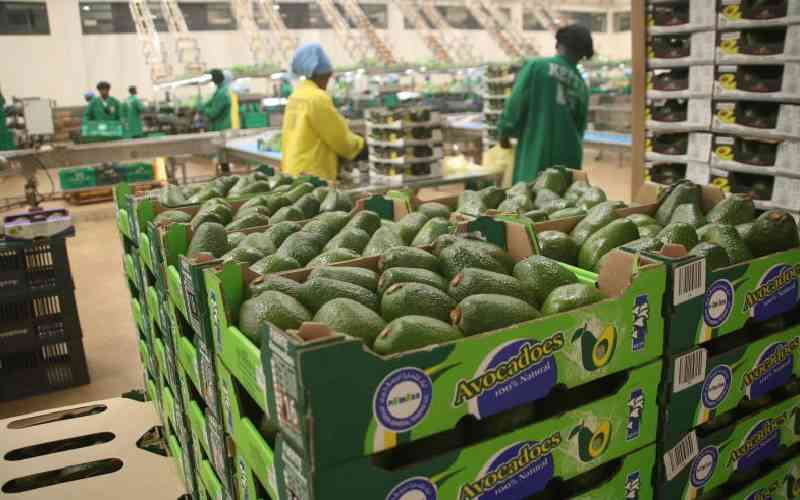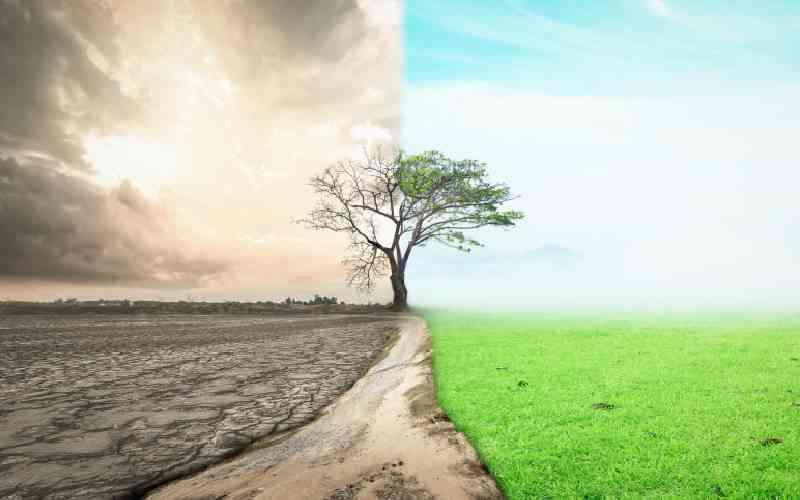
Kenya stands at a unique crossroads where its cultural heritage and natural environment converge to form a potent force in global climate change diplomacy. With climate-related challenges becoming more severe across the African region, infusing traditional cultural wisdom into climate adaptation and mitigations offers a promising opportunity for a holistic approach to addressing climate change. By emphasizing the intrinsic relationship between culture and environmental stewardship, Kenya can develop a model that sees cultural heritage as a central driver in building climate resilience and promoting sustainable development
Embracing Traditional Knowledge
One of Kenya's strongest assets in the fight against climate change lies in the knowledge held by its Indigenous communities. Right from sustainable pasture management by some pastoral communities of the north to water harvesting techniques employed along the coastal region, traditional knowledge systems in Kenya offer a lot of resilience and sustainability. Most of these methods have been tested for generations, with people in each region developing ways to manage the available land and water that is best fitted to the geography of the location. Understanding this, Kenya has encouraged policies that apply Indigenous knowledge alongside the current scientific methodologies, stating that climate change can be solved by balancing traditional practices with new technology.
Engaging Indigenous communities and recognising their insight can also result in better strategies towards climate change Communities become active participants, rather than mere recipients, of environmental policies, creating a stronger foundation for long-term climate resilience. Thus, in acknowledging and valuing traditional practices, Kenya not only preserves its cultural heritage but also enables the local support for environmental adaptation.
Cultural Diplomacy as a Tool for Climate Advocacy
Kenya's approach to climate diplomacy leverages its rich cultural heritage to underscore the importance of global climate action. Cultural festivals, traditional art, and environmental stories are some of the ways that communities can communicate issues related to climate resilience in an understanding and relatable manner to international communities. These cultural expressions serve as powerful diplomatic tools, fostering understanding and empathy while promoting climate action.
Culture also plays a crucial role in the incorporation of climate advocacy because it crosses barriers that include language and nationality. For instance, an awareness creation project that uses Maasai beadwork to encourage reforestation is much closer to the theme of sustainability and respect for natural resources than raw scientific information. This cultural lens broadens the appeal of Kenya's climate message, making it accessible and relatable to people around the world who may not share the same environmental challenges but understand the value of cultural preservation and community-led action.
Nature-Based Solutions Rooted in Cultural Context
Kenya’s diverse landscapes, from savannas to forests, not only support a wide range of species but also play a vital role in sequestering carbon and regulating local climates. Therefore, nature-based solutions with reference to the cultural values of the nation of Kenya provide a clear example of how it is possible to protect the environment, which in turn contributes to the development of the people. For instance, Initiatives such as community-led reforestation in the Mau Forest and the involvement of community in forest conservation can be a suitable approach where communities are at the center of climate change action.
These efforts highlight how protecting ecosystems can drive economic growth, support biodiversity, and bolster climate resilience. When local communities are empowered to lead these initiatives, conservation becomes a source of pride and ownership rather than an externally imposed obligation. The nature-based solutions by incorporating culture are fundamental to create a harmonious relationship between people and their environment which is essential key to reaching sustainable climate action.
Mobilizing Youth and Community for Sustainable Change
Youths are also an asset in climate diplomacy in Kenya. Young people are among the most influential in the fight against climate change and environmental change. Through grassroots initiatives and innovative projects, Kenya’s youth are promoting sustainable practices, often by combining cultural heritage with environmental activism. For example, many young activists are employing social media as a tool for advocacy as was recently seen in Kenya. Apply this for climate advocacy to raise awareness about issues such as deforestation and plastic pollution, connecting global audiences with Kenya’s environmental challenges. These social media activists can strengthen climate change diplomacy as a shared problem that threatens culture and heritage and requires collective action.
Similarly, these youth led climate diplomacy not only strengthens climate diplomacy can also go a long way to push for the much-needed climate funds especially to African nations, empower people to directly mitigate and adapt to climate change. These funds empower communities to implement region-specific solutions, making them active participants in Kenya’s climate resilience strategy. This community-driven approach demonstrates that effective climate action does not necessarily require large-scale interventions; instead, it relies on engaging those who are most affected and giving them the tools to make meaningful change.
Building a Sustainable Future through Cultural and Climate Diplomacy
Kenya's climate diplomacy strategy, rooted in cultural respect and environmental stewardship, presents a compelling case for how nations can address the global climate crisis. By blending traditional wisdom, cultural expression, and modern innovation, Kenya is fostering a model of climate action that prioritises people and nature alike. This holistic approach shows that cultural context can be a powerful resource, not a problem, in the strive for sustainability.
As climate challenges intensify, integrating Indigenous knowledge into climate diplomacy offers a powerful, holistic solution. Climate diplomacy that incorporates these perspectives can drive more effective and sustainable responses. Climate diplomacy that incorporates cultural values and recognises the interconnectedness of culture, humanity and environment. In doing so, Kenya’s climate diplomacy will not only protect its own natural and cultural heritage but also inspires a global movement towards a more sustainable, inclusive, and resilient future.
Ummi Bashir, PS State Department for Culture, Arts and Heritage and PhD Student in USIU - Foreign Policy and Diplomacy
 The Standard Group Plc is a multi-media organization with investments in media
platforms spanning newspaper print operations, television, radio broadcasting,
digital and online services. The Standard Group is recognized as a leading
multi-media house in Kenya with a key influence in matters of national and
international interest.
The Standard Group Plc is a multi-media organization with investments in media
platforms spanning newspaper print operations, television, radio broadcasting,
digital and online services. The Standard Group is recognized as a leading
multi-media house in Kenya with a key influence in matters of national and
international interest.
 The Standard Group Plc is a multi-media organization with investments in media
platforms spanning newspaper print operations, television, radio broadcasting,
digital and online services. The Standard Group is recognized as a leading
multi-media house in Kenya with a key influence in matters of national and
international interest.
The Standard Group Plc is a multi-media organization with investments in media
platforms spanning newspaper print operations, television, radio broadcasting,
digital and online services. The Standard Group is recognized as a leading
multi-media house in Kenya with a key influence in matters of national and
international interest.


